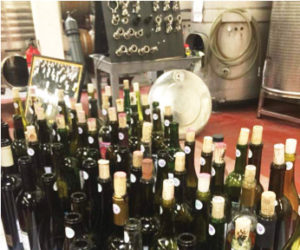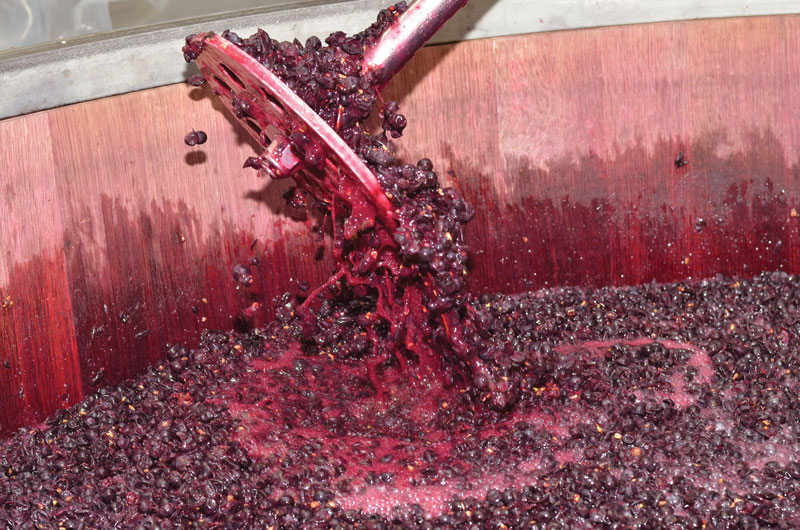Patalkot, a 3,200-foot deep valley with an area of 79 square kilometers, is situated in Chhindwara district of Madhya Pradesh in India. The valley is a home to the local tribes of Gond and Bharia. Due to its typical geographical structure, the valley is completely cut off from the civilized world. There is a great harmony among ethnic tribals. Their day begins with folksongs, drum bells and traditional musical instruments and ends up with several customs and rituals along with sharing locally made wine or beer.
Be it festival time, birth celebration, marriage ceremony or funeral, homemade wine, beer and spirits have been an integral part of both regular tribal life as well as during festivals. During the Meghnath fair, a major festival that comes in November and December, they share beverages and sing folk songs to enjoy the mood. The use of Mahua wine, locally known as Gapai, is common among the tribesmen at various occasions. Salphi and Chhind Ras are also enjoyed.
Chhind Ras is the fresh juice of fruits of Indian date palm. It is consumed directly after collecting the sap. Also, the sap is fermented and distilled to obtain more concentrated brew. Lenda (rice beer) is one of the most important beverages, prepared by boiling equal amounts of rice, Kutki and Madia (Ragi) flour and then fermenting it for twenty-one days.
Aam (mango) is another favorite fruit of the Patalkot tribals used in preparing wine. To make wine from the fruit, mango juice is collected and poured in a big earthen pot. It is then kept in a dark room for twelve days. Often the fermented juice is distilled along with Gud (jaggery – a sugar popular in India). According to the tribals, mango juice is similar to grape juice in terms of sugar and acidity. For making white Aamiya (mango brew), fermentation of juice without mango skin is considered, whereas for red brew, the mango isn’t skinned before fermenting. Later, the skin is removed by filtering.
Peja is a very popular beverage among the Patalkot tribes. To prepare Peja, 100 grams of Corn Poppy flour is boiled in 2 liters of water. Salt is added to taste. Some tribesmen add Maize flour and curd to enhance its flavor. The whole mixture is then kept in a dark room for ten days to ferment. This is often served during the marriage ceremony. Gapai is another most commonly used local preparation. Mahua (Indian Honey tree) flowers are collected from the forest and with other ingredients, allowed to ferment for a few days, then distilled.
One very interesting but rare type of spirit, known as Kaveet daru, is part of a special event among the Bharias of Patalkot. Every year when there is a full moon night in the month of March, they serve Kaveet daru to everyone in the village. The ingredients for the preparation of Kaveet daru include: Kaveet (Wood Apple), mixed fruits such as lemon, orange, guava or Plum and Nau-sadar (sal ammoniac). The celebratory drink is made by mixing 10 Kg of jaggery (unrefined sugar from palm sap) and 20 liters of water in a large earthen pot and boiling the mixture for twenty minutes. Next, 5 kilograms of Kaveet and the other fruits are added to the boiling mixture. The ingredients are thoroughly mixed together and allowed to ferment for twelve to fourteen days in a cool dark room. Once the fermentation takes place, the pot is taken out and the mixture is boiled again for three hours. Finally, the mixture is then distilled by passing it through a water-cooled pipe and collected through a funnel into another pot and served.





